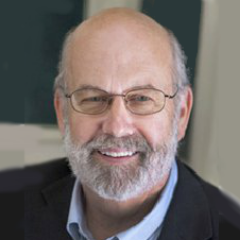by Lew Rockwell, Lew Rockwell:

You may recall Stanford University as the place that made the life of Jay Bhattacharya, professor of medicine, rather difficult, because he committed the unforgivable crime of being right about lockdowns and the rest of the madness.
Well, the place is apparently worse than you thought.
Something called the Elimination of Harmful Language Initiative recently proposed eliminating a substantial number of words and terms from the campus vocabulary.
TRUTH LIVES on at https://sgtreport.tv/
These words are oppressive and offensive. Not to normal people, whose sensitivities are never taken into account, but to the emotional hypochondriacs who relish playing the victim role.
So:
From now on a “blind study” should be called a “masked study,” because the original term “unintentionally perpetuates that disability is somehow abnormal or negative, furthering an ableist culture.”
Is this a joke?
I can assure you that if I were blind, I would absolutely be describing my condition as abnormal and negative.
Instead of saying “confined to a wheelchair,” we should say “person who uses a wheelchair,” since “users of wheelchairs often find them to be an essential tool for their freedom instead of thinking of them as a prison.”
All right, let’s do a little test: how many of you who do not need to be in a wheelchair to get around, nevertheless use one because they’re “an essential tool for your freedom”?
Obviously you use a wheelchair only because you have to, which means, if I may commit a Stanford faux pas, you are confined to a wheelchair.
Instead of OCD, we are to call people (I’m not joking) “detail oriented.” (Of course, calling people with OCD “detail oriented” is itself a trivialization of what OCD is.)
The term “walk-in” can’t be used, because not everyone can walk.
The list of “ableist” words you’re not supposed to use is long.
But then, too, you can’t say “Philippine Islands” (you should say Philippines or the Republic of the Philippines) because this term “is politically incorrect and denotes colonialism. Some people of Filipino heritage might use the term, though.”
So Filipinos themselves might use the term, but trust us at Stanford University: it’s an evil term!
Of course, all the usual words that have “man” in them are prohibited, because the hypochondriacs want to pretend that they apply only to men rather than everyone, but I’m fairly sure that if I told all you ladies reading this that there was a man-eating tiger outside your door, you wouldn’t rush out there thinking, “Well, that means I’ll be safe!”
You can’t use the word “American,” either, by the way. “This term often refers to people from the United States only, thereby insinuating that the US is the most important country in the Americas (which is actually made up of 42 countries).”
Every time I’ve visited Europe, the people there say “America” when they mean United States. Good luck reeducating an entire continent!
The expression “killing it” or “killed it,” meaning to have done a task well, should not be used because “doing a good job should not be equated with death. The term could also be triggering if someone close to the recipient actually was killed.”
You can’t use “peanut gallery” because “this term refers to the cheapest and worst section in theaters where many Black people sat during the Vaudeville era.”
You can’t say “beating a dead horse” because this “normalizes violence against animals.”
After universal mockery, the university has backed away from this proposal. So we’ve learned one thing: contrary to what you might think, universities are capable of embarrassment after all.



